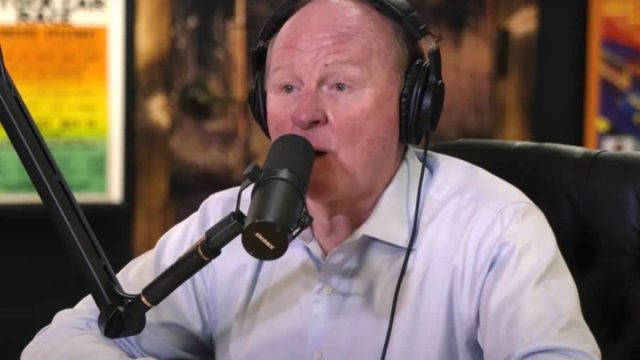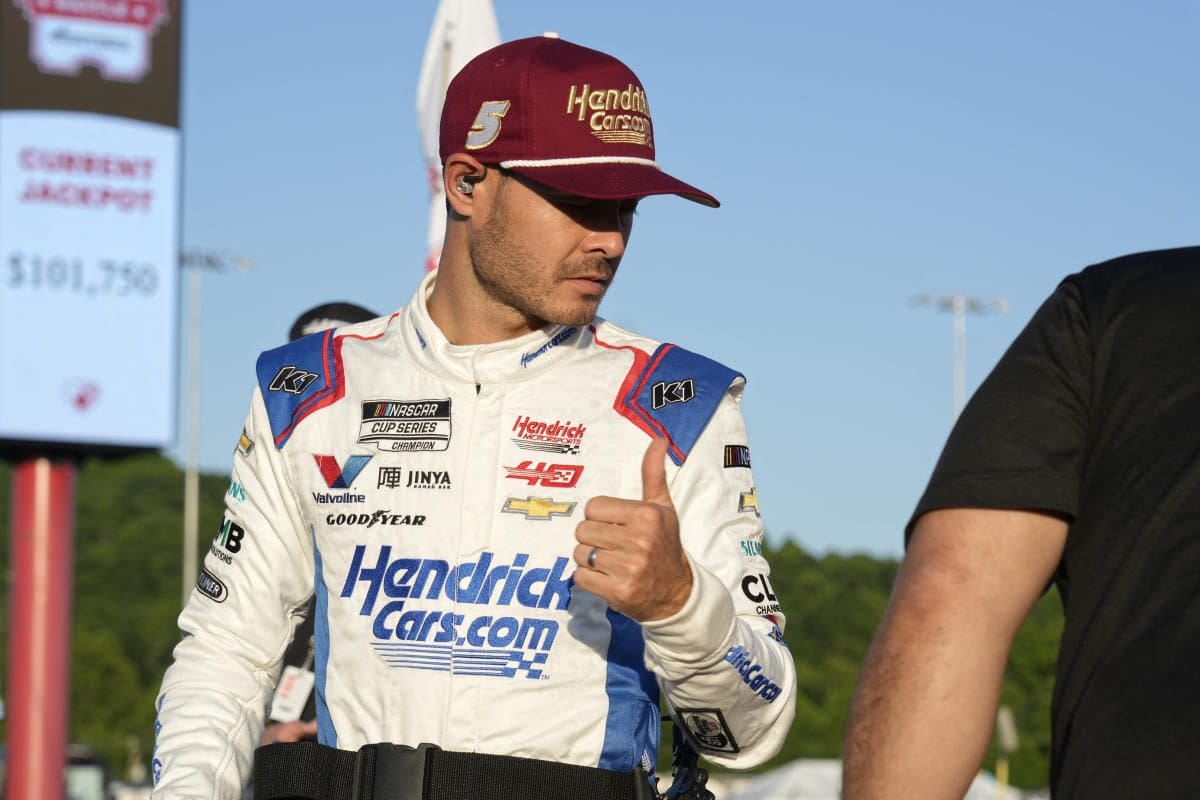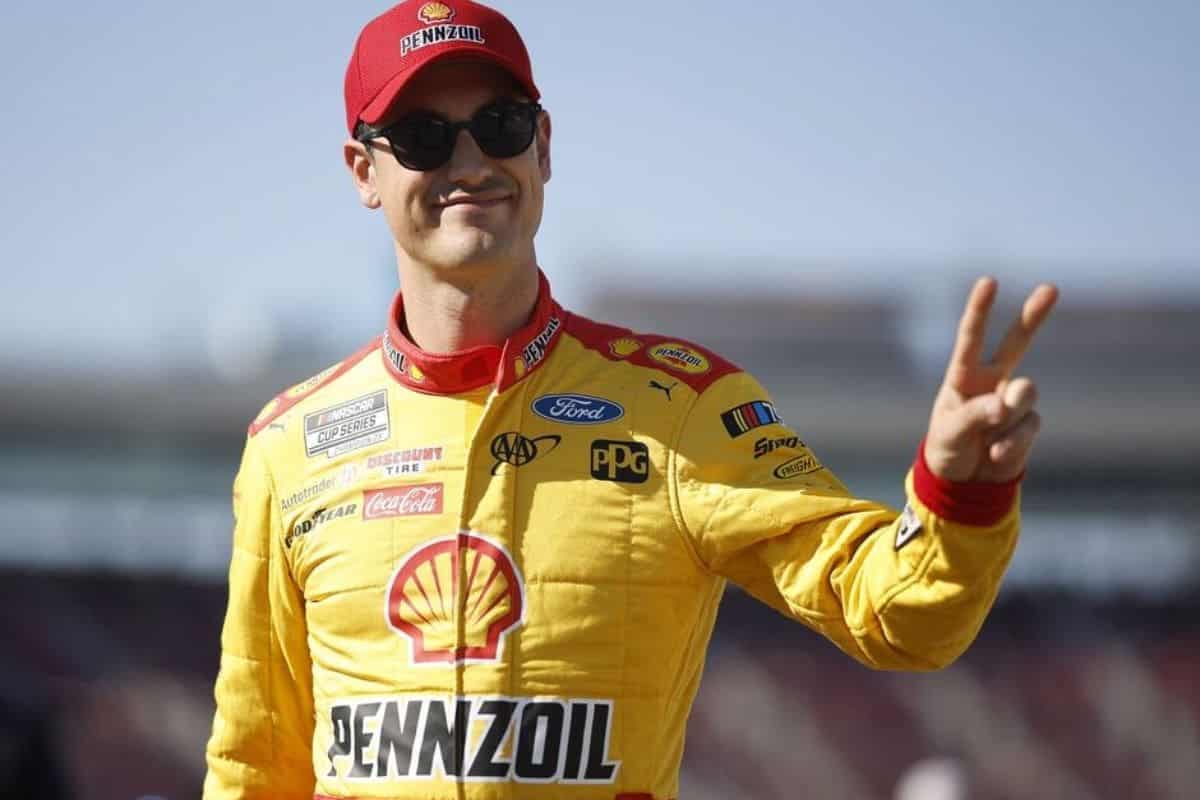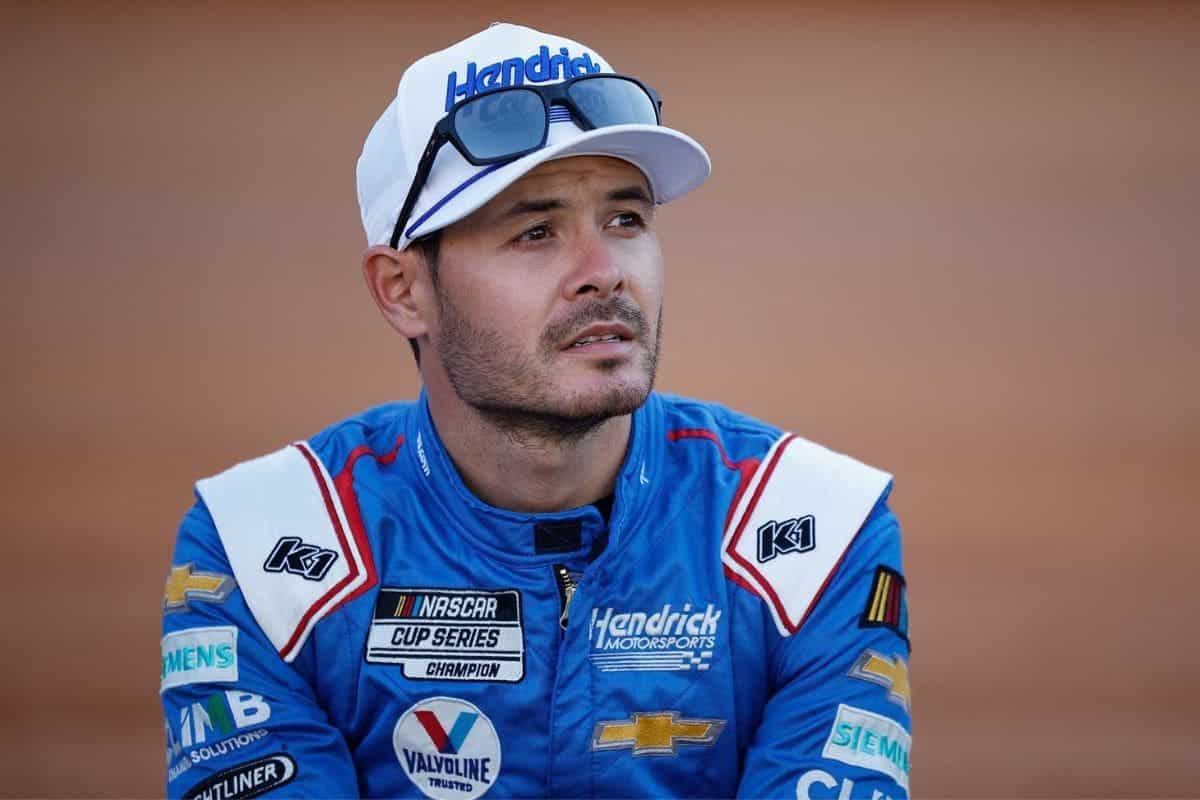Larry McReynolds Criticizes Logano: Larry McReynolds has taken a firm stance against Joey Logano‘s opinion regarding Kyle Larson‘s playoff eligibility, suggesting that Logano’s view lacks a detailed understanding of Larson’s unique situation. McReynolds argues for a more balanced approach, emphasizing the need for NASCAR to maintain consistency in its waiver decisions while also considering the broader implications of fairness and discipline. The discussion raises critical questions about whether Larson’s circumstances warrant special consideration, and how NASCAR’s handling of this issue might set a significant precedent for future cases. What broader impacts could this debate have on NASCAR’s regulatory landscape?
Key Takeaways
- Larry McReynolds believes Joey Logano’s stance on Kyle Larson’s playoff waiver lacks empathy and understanding of NASCAR’s historical waiver precedents.
- McReynolds asserts that Larson’s case is deserving of a waiver based on NASCAR’s established practices for exceptional circumstances.
- He criticizes Logano for not considering the enforced nature of Larson’s absence, differentiating it from deliberate avoidance.
- McReynolds emphasizes the importance of maintaining competitive integrity and fairness in NASCAR’s playoff decisions.
- He argues that Logano’s viewpoint could undermine NASCAR’s efforts to balance fairness and discipline through waivers.
Kyle Larson’s Decision Sparks Controversy
Kyle Larson’s choice to prioritize the Indy 500 over the Coca-Cola 600 has ignited a contentious debate within the NASCAR community. Central to this debate is the necessity for Larson to obtain a waiver from NASCAR to remain playoff-eligible, per the organization’s rule book. This decision has raised questions about Larson’s commitment to the NASCAR Cup Series and brought to light the complexities involved in balancing commitments across different racing disciplines.
From an analytical standpoint, Larson’s decision highlights the allure and prestige associated with the Indy 500, an event known for its historical significance and global appeal. The Indy 500 represents a unique challenge and a chance for Larson to cement his legacy in motorsports by competing in one of the most storied races. This move mirrors a broader trend of drivers seeking to diversify their achievements across multiple racing arenas.
The implications of this decision extend beyond personal ambition. Joey Logano, a prominent rival, has openly questioned Larson’s intention in missing the Coca-Cola 600, implying a lack of dedication to NASCAR’s premier series. Logano’s controversial take suggests that missing an important race like the Coca-Cola 600 could be perceived as undermining the sport’s competitive integrity.
Larry McReynolds Defends Larson
In a decisive rebuttal, Larry McReynolds has stated a strong defense of Kyle Larson’s decision to participate in the Indy 500, challenging Joey Logano’s criticisms as lacking a fair comparison. McReynolds, a veteran NASCAR analyst, used his platform on the SiriusXM radio show to dissect Logano’s comments, which compared Larson’s participation in the prestigious Indy 500 with scenarios like taking a vacation in the Bahamas or competing in a dirt late model race.
McReynolds highlighted the importance in Logano’s analogies, pointing out that equating a groundbreaking attempt at the Indy 500 with a trip or a smaller-scale race undermines the significance of Larson’s choice.
Let’s continue with the Joey Logano interview. He said, what if I decide to take a week off and go to the Bahamas? Come on, Joey, really? Seriously, are we really apples and apples here? …And I heard him say, What If I decide to go run a big dirt late model race, really are we comparing apples to apples?-(larry)
McReynolds stressed that the Indy 500 is not just another race but a monumental event that can boost a driver’s career and visibility in the racing world. The comparison to a vacation or a dirt race, McReynolds argued, trivializes the commitment and potential career implications associated with competing in such a marquee event.
McReynolds’ defense of Larson suggests a more detailed understanding of the opportunities and challenges professional drivers face. His critique of Logano’s analogy serves as a reminder that decisions made by elite athletes often involve complex considerations far beyond the superficial comparisons drawn by critics.
McReynolds’ defense not only supports Larson but also calls for a more subtle appreciation of the strategic choices drivers make in their careers.
NASCAR’s History with Waivers
NASCAR has shown a willingness to provide assurances to drivers under exceptional circumstances, reflecting the organization’s adaptability and commitment to maintaining competitive integrity. This subtle approach guarantees that unforeseen events do not unfairly penalize talented drivers, thereby preserving the sport’s competitive spirit.
One notable instance occurred in 2015 when Kyle Busch received a waiver after missing 11 races due to an injury sustained on the track. Despite his absence, Busch returned and ultimately clinched the championship, highlighting the significance of NASCAR’s decision. This case set a precedent that emphasized the importance of evaluating each situation on its individual merits rather than adhering to a rigid rulebook.
The COVID-19 pandemic further emphasized NASCAR’s flexibility. Numerous drivers were granted exceptions due to the unprecedented disruption caused by the global health crisis. These exceptions ensured that the championship race remained fair and competitive, recognizing the extraordinary circumstances faced by participants.
You wrecked Denny Hamlin at Charlotte Motor Speedway one year ago; you’re suspended for a week but you get the playoff waiver. To me, that’s where we really open the gate pretty darn wide,”- (McReynolds)
Chase Elliott was granted a waiver after serving a suspension for intentionally wrecking Denny Hamlin during the Coca-Cola 600 race. This decision sparked debate, yet it demonstrated NASCAR’s ongoing commitment to balancing discipline with fairness. While Elliott’s actions warranted a suspension, the waiver allowed him to remain in the running, thus maintaining the competitive equilibrium.
The Waiver Dilemma
Sailing through the complexities of waiver decisions, NASCAR now faces a unique challenge with Kyle Larson’s situation, which differs from the mainly medical-based waivers granted in the past. Historically, NASCAR has navigated the waiver waters with a clear-cut framework—granting waivers mostly for drivers sidelined due to medical issues.
However, Larson’s case introduces an unprecedented scenario that complicates the decision-making process. Elton Sawyer, NASCAR’s Senior Vice President of Competition, acknowledged the uncharted territory this presents. “It’s a little bit uncharted waters to us because in the past, the waivers have mostly been given for a medical reason. This one is a little bit different from that aspect,” Sawyer remarked.
The crux of the dilemma lies in whether NASCAR should extend the same leniency to Larson, whose situation deviates from the medical precedents. The waiver process, by its nature, demands inspection and consistency. In Larson’s case, NASCAR must weigh the implications of setting a new precedent.
The organization’s decision could influence future waiver considerations, potentially broadening the scope beyond medical issues. This expansion could lead to debates over the subjective nature of what constitutes a waiver-worthy circumstance, further complicating the regulatory landscape.
Moreover, NASCAR’s stance thus far—marked by a delay in initiating the waiver process—signals the gravity of the decision at hand. As the governing body contemplates its next move, it must balance fairness, consistency, and the potential domino effects within the sport.
The outcome of Larson’s waiver dilemma will not only impact his playoff trajectory but also set an essential precedent for NASCAR’s approach to non-medical waiver requests in the future.
Larson’s Deserving Case
Evaluating Larson’s situation, one must take into account the precedent set by previous exceptional rulings made by NASCAR. Historically, the governing body has demonstrated a capacity for making subtle decisions based on unique circumstances.
The most notable case is that of Kyle Larson’s 2020 suspension from Chip Ganassi Racing due to his use of racial slurs during an online e-sports event. Despite the seriousness of his actions, NASCAR provided Larson with a playoff waiver, illustrating their willingness to take into account context and intent.
To further understand Larson’s deserving case, consider these key points:
- Precedent of Leniency: Larson’s case in 2020 saw NASCAR granting a waiver despite significant misconduct, acknowledging that his absence was not a deliberate avoidance of competition but a necessary repercussion.
- Compulsory Decision: Larson’s current situation is not a result of deliberate action but rather an enforced decision, which aligns with NASCAR’s historical approach to waivers.
- Competitive Integrity: Ensuring Larson’s participation, given his performance and standing, would maintain the competitive integrity of the playoffs, which is important for the sport’s credibility.
- Fairness in Rulings: Consistency in NASCAR’s decisions is important. Granting Larson a waiver would reflect fairness, considering similar cases in the past.
Given these factors, the argument for Larson’s waiver is compelling. NASCAR’s final decision will without a doubt be scrutinized, but historical context suggests a favorable outcome for Larson.
This consistency in rulings not only upholds the sport’s integrity but also reinforces NASCAR’s commitment to fairness, ensuring that exceptional circumstances are judiciously considered.
News in Brief: Larry McReynolds Criticizes Logano
McReynolds’ criticism of Logano’s stance on Larson’s playoff eligibility highlights the importance of a thoughtful approach in NASCAR’s waiver decisions.
Emphasizing the significance of consistency and fairness, McReynolds points out the intricacies involved in balancing disciplinary actions with equitable treatment.
This debate showcases broader implications for the sport’s regulatory framework and the potential precedents set by such decisions.
Ultimately, Larson’s unique circumstances warrant careful consideration to uphold the integrity and consistency of NASCAR’s governance.
ALSO READ: Larry McReynolds Crew Chief Formula: The Key to NASCAR Success



